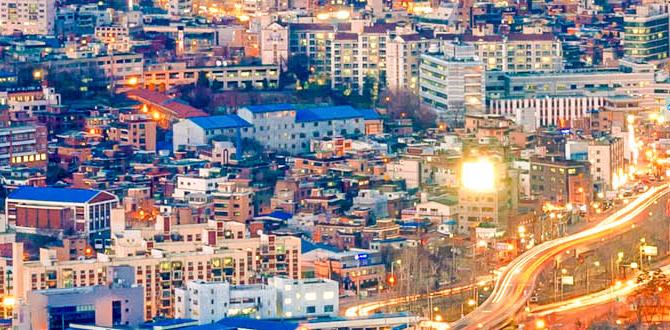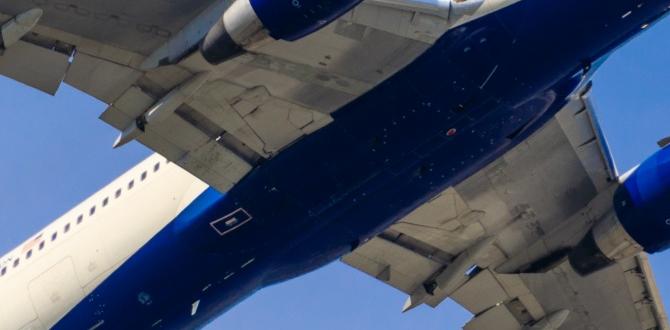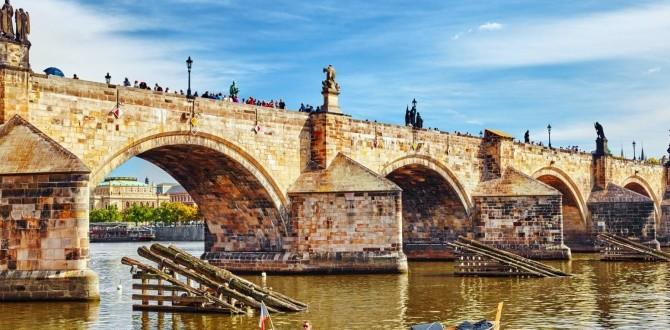Planning your Algeria one-week itinerary is achievable with this essential guide! Discover key destinations, practical tips, and a flexible schedule to make your trip unforgettable.
Algeria, the largest country in Africa, often sparks curiosity but can feel a bit daunting to plan for. Many travelers wonder how to best experience its diverse landscapes and rich history in just a week. It’s easy to feel overwhelmed by the sheer size and the lack of readily available, straightforward itineraries. But don’t worry! This guide is designed to break it down, making your Algeria adventure clear, comfortable, and exciting. We’ll walk you through a realistic one-week plan, focusing on essential sights and practical advice so you can travel with confidence. Get ready to explore ancient ruins, vibrant cities, and stunning natural beauty.
Crafting Your Algeria One Week Itinerary: A Traveler’s Blueprint
Embarking on a one-week journey through Algeria means focusing on key highlights that offer a true taste of the country’s magic. This itinerary is designed for first-time visitors, balancing historical immersion with natural wonders, all while keeping travel time in mind. We’ll concentrate on areas accessible within a week, ensuring you get a rich experience without feeling rushed. Think of this as your flexible framework, ready to be adapted to your interests.
Day 1: Arrival in Algiers & Kasbah Charm
Your Algerian adventure begins in Algiers, the vibrant capital. After settling into your accommodation, dive straight into the heart of the city: the Casbah of Algiers. This UNESCO World Heritage site is a labyrinth of narrow alleys, traditional houses, and bustling souks.
Morning/Afternoon: Arrive at Houari Boumediene Airport (ALG). Transfer to your hotel and check in.
Late Afternoon: Begin exploring the Casbah. Wander through its ancient streets, soak in the atmosphere, and perhaps enjoy a mint tea at a local café.
Evening: Enjoy your first Algerian dinner. Try traditional dishes like Couscous or Mechoui.
Essential Tip for Algiers: Comfortable walking shoes are an absolute must for navigating the uneven, hilly streets of the Casbah.
Day 2: Algiers – History and Coastal Views
Dedicate your second day to Algiers’ historical and modern marvels. The city offers a fascinating blend of Ottoman, Moorish, and French colonial influences.
Morning: Visit the Notre Dame d’Afrique. This stunning basilica, perched on a hilltop, offers panoramic views of the bay. Its unique architecture is a testament to Algeria’s diverse past.
Afternoon: Explore the Musée National des Antiquités et d’Art Islamique (National Museum of Antiquities and Islamic Art) for a deep dive into Algeria’s rich heritage. Afterwards, stroll along the Promenade des Sablettes, a beautiful waterfront area.
Evening: Experience Algiers’ modern side. Enjoy dinner at a restaurant in the Hafiz D’Alger area, known for its lively atmosphere.
Traveler Comfort Note: For longer journeys or when exploring extensively, consider packing discreet and comfortable adult or child diapers. This can significantly reduce stress, especially during air travel or when restroom facilities are uncertain. Brands like Depend or TENA offer reliable options for both adults and children, ensuring comfort and security throughout your travels.
Day 3: Day Trip to Tipasa & Cherchell – Roman Legacies
Algeria boasts incredible Roman ruins. Today, you’ll take a day trip to discover two significant archaeological sites on the coast.
Morning: Travel west to Tipasa. This ancient Phoenician, Roman, and Byzantine city is another UNESCO World Heritage site. Explore the impressive ruins, including the amphitheater, basilicas, and the well-preserved Roman theater. The amphitheater offers breathtaking views of the Mediterranean Sea.
Afternoon: Continue to Cherchell (ancient Caesarea), the capital of the Roman province of Mauretania. Visit its archaeological museum showcasing a collection of Roman statues and artifacts.
Evening: Return to Algiers.
Logistical Insight: Hiring a private driver or joining a guided tour is the most efficient way to visit Tipasa and Cherchell from Algiers. This saves time and ensures you don’t miss any key points.
Day 4: Fly to Constantine – The “City of Bridges”
Today, you’ll fly from Algiers to Constantine, a city dramatically perched above a deep ravine. Its unique topography has earned it the nickname “City of Bridges.”
Morning: Take a domestic flight from Algiers to Constantine (Constantine Mohamed Boudiaf Airport – CZL).
Afternoon: Check into your hotel and immediately immerse yourself in Constantine’s stunning scenery. Walk across the Sidi M’Cid Bridge, offering spectacular views of the Rummel Gorge.
Evening: Explore the old city center and find a local restaurant to savor regional specialties.
A Note on Flights: Booking domestic flights in Algeria in advance is highly recommended, as schedules can be limited. Airlines like Air Algérie operate these routes.
Day 5: Constantine – History and Culture
Constantine is steeped in history and offers a unique cultural experience.
Morning: Visit the Palace of the Bey, a historical monument displaying traditional Islamic architecture. Don’t miss the Great Mosque of Constantine, one of the oldest mosques in the city.
Afternoon: Explore the Musée National Cirta, which houses artifacts from prehistoric times to the Islamic era. Afterwards, wander through the charming narrow streets of the Medina.
Evening: Enjoy a relaxing evening, perhaps catching a local performance if available.
Day 6: Day Trip to Djemila – A Roman Jewel
Another UNESCO World Heritage site awaits you today: Djemila (ancient Cuicul). This remarkably well-preserved Roman-Berber town is a must-see for history enthusiasts.
Morning: Take a day trip to Djemila. The journey offers a glimpse into Algeria’s interior landscapes.
Afternoon: Explore the extensive ruins of Djemila, including the forum, temples, basilicas, and triumphal arches. The site’s mountainous setting adds to its dramatic appeal.
Evening: Return to Constantine.
Planning Your Day Trip: Consider arranging transportation and possibly a local guide for Djemila in advance. This site is quite spread out, and having local knowledge can enhance your visit.
Day 7: Algiers Departure
Your one-week Algerian adventure concludes today.
Morning: Depending on your flight schedule, enjoy a final Algerian breakfast or do some last-minute souvenir shopping in Constantine.
Afternoon: Fly back to Algiers (ALG) for your international departure.
Travel Chronology: Remember to factor in adequate travel time between cities and to the airport for your departure.
Essential Practicalities for Your Algeria Trip
Planning a trip to any new destination involves more than just an itinerary. Here are practical tips to ensure your Algeria visit is smooth and comfortable, covering everything from packing to essential documents.
Visa Requirements and Important Documents
Before you finalize your Algeria one-week itinerary, understanding visa requirements is paramount.
Visa: Most nationalities require a visa to enter Algeria. It is crucial to apply well in advance through the Algerian embassy or consulate in your country. Requirements can vary, so check the official embassy website for the most up-to-date information. For example, the Permanent Mission of Algeria to the United Nations can be a good starting point to find your local embassy.
Passport: Ensure your passport is valid for at least six months beyond your intended stay and has at least two blank pages.
Travel Insurance: Comprehensive travel insurance is highly recommended. It should cover medical emergencies, trip cancellations, and lost luggage.
Getting Around Algeria
Navigating Algeria can be an adventure in itself.
Domestic Flights: For covering long distances efficiently within a week, domestic flights are your best bet. Air Algérie is the primary national carrier.
Trains: Algeria has a rail network, but it’s often slower than flying and might not connect all the desired tourist spots seamlessly for a tight itinerary.
Car Hire/Taxis: Car hire is available, but driving can be challenging due to road conditions and traffic. Taxis are common, especially in cities. For longer inter-city travel, consider hiring a car with a driver.
Guided Tours: For a stress-free experience, especially for specific sites like Djemila or day trips from Algiers, opting for organized tours can be very beneficial.
Accommodation Options
Algeria offers a range of accommodations, from modern hotels to more traditional guesthouses.
Algiers & Constantine: You’ll find international hotel chains and local hotels, particularly in these major cities. Booking platforms can help you compare prices and amenities.
Budget Traveler: If you’re traveling on a budget, look for smaller hotels or guesthouses, especially in older parts of towns.
Currency and Payments
The official currency is the Algerian Dinar (DZD).
Cash is King: While some larger hotels may accept cards, cash is still widely used, especially in markets and smaller establishments.
ATMs: ATMs are available in cities, but it’s wise to carry a sufficient amount of cash. Inform your bank about your travel plans to avoid card issues.
Currency Exchange: Exchange currency at official exchange bureaus or banks to get the best rates and avoid counterfeit money.
Language and Communication
Official Languages: Arabic and Tamazight are the official languages. French is widely spoken and understood, especially in business and among educated circles.
English: English is not widely spoken, so learning a few basic Arabic or French phrases will be incredibly helpful. Translation apps can also be a great companion.
Packing Essentials for Comfort and Preparedness
Beyond clothing, think about items that enhance comfort and practicality, especially when dealing with longer travel days or potential uncertainties.
Comfortable Clothing: Light, breathable fabrics are best for the climate. Pack modest clothing out of respect for local customs, especially when visiting religious sites.
Comfort Items: For adults and children who may need them, packing discreet, high-absorbency adult diapers or child diapers can be a lifesaver. Brands like Tranquility or Prevail offer reliable products for managing incontinence discreetly, ensuring peace of mind during long journeys or when access to facilities is limited.
Sturdy Footwear: Essential for exploring ancient ruins and city streets.
Sun Protection: Sunscreen, hats, and sunglasses are vital, especially during warmer months.
Basic First-Aid Kit: Include essentials like pain relievers, antiseptic wipes, bandages, and any personal medications.
Power Adapters: Algeria uses Type C and Type F power sockets.
Portable Charger: Invaluable for keeping your devices charged on the go.
Exploring Algeria: Cultural Etiquette and Safety Tips
Understanding local customs and prioritizing safety will greatly enhance your travel experience. Algeria is generally a safe country for tourists, but being informed is always best.
Cultural Nuances to Observe
Algerians are known for their hospitality. Showing respect for their culture is key.
Dress Modestly: Particularly outside major tourist areas and when visiting religious sites. Women should consider covering their shoulders and knees.
Greetings: A handshake is common, but in more conservative settings, men and women might not shake hands. A warm smile and a nod are always appreciated.
Photography: Always ask permission before taking photos of people, especially women.
Hospitality: If invited for tea or coffee, it’s a sign of great respect to accept.
Safety Guidelines
Stay Aware: Be mindful of your surroundings, especially in crowded markets.
Valuables: Keep your valuables secure and avoid displaying expensive items.
Scams: Be aware of common tourist scams, such as overcharging by taxi drivers. It’s wise to agree on a fare beforehand or ensure the meter is used.
Solo Female Travelers: While Algeria is generally safe, solo female travelers may attract more attention. Dressing modestly and being aware of your surroundings is advisable. Consider joining group tours for added comfort and security.
Emergency Numbers: Familiarize yourself with local emergency numbers.
Algeria One Week Itinerary: Key Highlights Table
To give you a quick overview of what your week might look like, here’s a summarized table of the proposed itinerary, focusing on the main destinations.
| Day | Primary Location | Key Activities | Notes |
| :– | :————— | :—————————————————— | :———————————————— |
| 1 | Algiers | Arrival, Check-in, Casbah Exploration | Focus on acclimatization and first impressions. |
| 2 | Algiers | Notre Dame d’Afrique, Museums, Coastal Promenade | Dive into history and city views. |
| 3 | Day Trip | Tipasa & Cherchell (Roman Ruins) from Algiers | Efficient exploration of coastal archaeological sites. |
| 4 | Constantine | Fly to Constantine, Arrive, Sidi M’Cid Bridge, Gorge View | Experience the “City of Bridges.” |
| 5 | Constantine | Palace of the Bey, Great Mosque, Cirta Museum, Medina | Immerse in Constantine’s rich history and culture. |
| 6 | Day Trip | Djemila (Roman Ruins) from Constantine | Explore a remarkably preserved ancient city. |
| 7 | Algiers | Fly to Algiers, Departure | Final checks and onward travel. |
This table highlights the core moments of your trip, allowing for a clear visual planning aid.
Frequently Asked Questions About Algeria Travel
Here are answers to some common questions beginners might have when planning their Algeria journey.
Q1: Is Algeria safe for tourists?
A1: Yes, Algeria is generally safe for tourists. Like any destination, it’s wise to be aware of your surroundings, especially in busy areas, and to take standard precautions against petty crime. The country is proud of its hospitality, and most visitors have very positive experiences.
Q2: What is the best time of year to visit Algeria?
A2: The best time to visit Algeria is during spring (April to May) and autumn (September to October). The weather is pleasant, with mild temperatures ideal for sightseeing and exploring historical sites. Summers can be very hot, especially inland.
Q3: Do I need to speak Arabic or French?
A3: While French is widely spoken, especially in business and among many locals, learning a few basic Arabic phrases will be very helpful and appreciated. English is not commonly spoken outside of major tourist hotels. Using translation apps can also be a great aid.
Q4: What are the essential items to pack for Algeria?
A4: Pack comfortable walking shoes, light and modest clothing, sun protection (hats, sunscreen, sunglasses), any personal medications, a basic first-aid kit, and a power adapter. For peace of mind and extended comfort, discreet adult diapers or child diapers can be beneficial, especially for longer travel days.
Q5: Can I use my credit cards in Algeria?
A5: Credit card acceptance is limited, mainly to larger hotels and some select shops or restaurants in major cities. It’s highly recommended to carry sufficient cash (Algerian Dinars) for most transactions, especially in markets and smaller towns. ATMs are available in cities for cash withdrawals.
Q6: Is it easy to travel between major cities in Algeria?
A6: Domestic flights operated by Air Algérie are the most efficient way to travel between major cities like Algiers and Constantine for a shorter itinerary. Trains and buses are also available but are generally slower. Hiring a car with a driver is another option for more flexibility.
Conclusion: Your Algerian Adventure Awaits
Embarking on a one-week journey through Algeria is an exciting prospect, filled with ancient wonders, vibrant culture, and breathtaking landscapes. This Algeria one week itinerary guide provides a solid foundation for your trip, focusing on key highlights like the historic Casbah of Algiers, the Roman marvels of Tipasa and Djemila, and the dramatic “City of Bridges” in Constantine.
Remember that flexibility is key; this itinerary is a suggestion, and you should tailor it to your personal pace and interests. Beyond the sights, embrace Algerian hospitality, be prepared with practical essentials (including comfort items that ensure peace of mind, like reliable adult or child diapers for stress-free travel), and approach your journey with an open mind. With a little planning, your week in Algeria promises to be an unforgettable exploration of a truly captivating North African gem. Safe travels!




